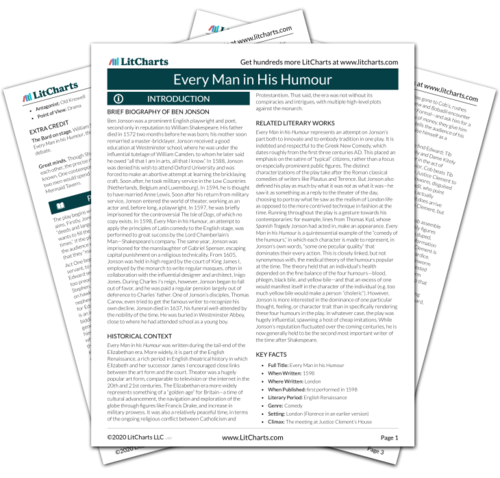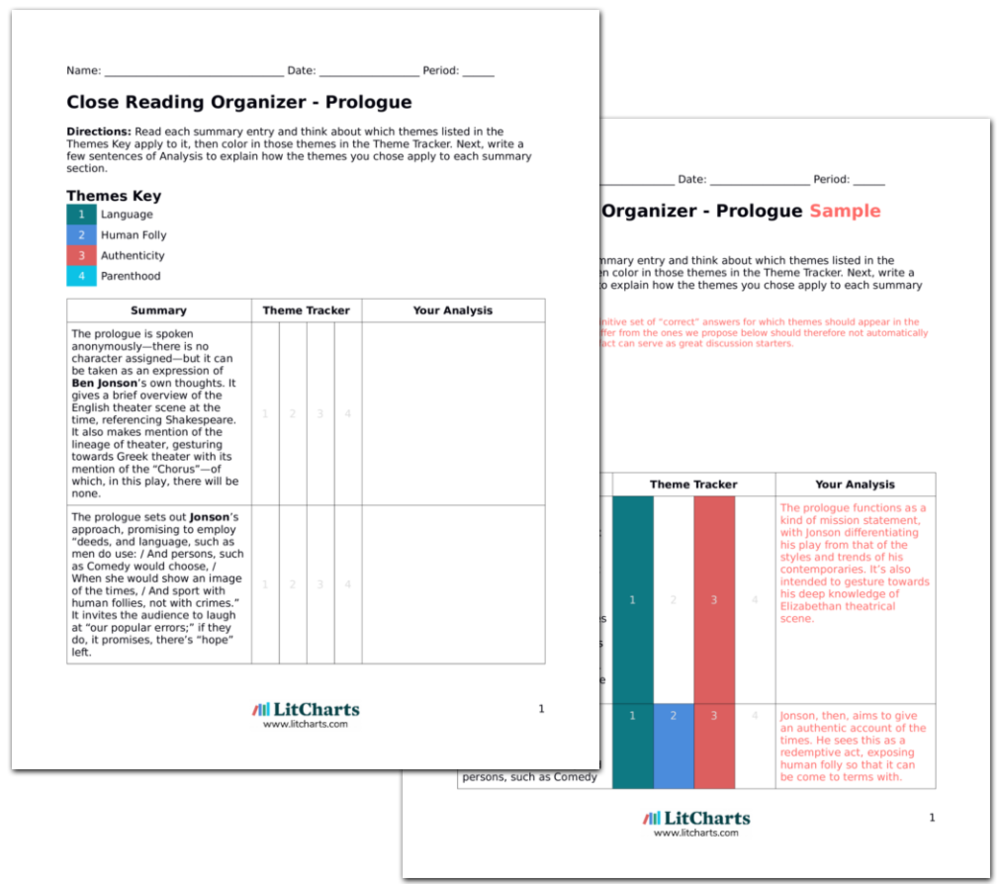![]()
LitCharts assigns a color and icon to each theme in Every Man in His Humour, which you can use to track the themes throughout the work.
![]()
![]()
![]()
![]()
The play opens with Old Knowell at home. He asks Brainworm , his servant, to call for his son, Edward Knowell —but not to disturb him if he is studying. Old Knowell expresses gladness that Edward is engaged with his education, but worries that he spends too much time “dreaming on naught but idle poetry , / That fruitless and unprofitable art.”
This introduces Old Knowell’s dilemma: he is conflicted over how best to parent Edward. Part of him wants to be controlling, and part of him wants to let his son lead his own life. This is an early mention of poetry, which functions in various ways throughout: as social currency, evidence of pretention, and a tool with which to bring reality to theatrical life.
Active Themes![]()
![]()
Master Stephen , Old Knowell ’s dim-witted nephew from the countryside, comes in. Stephen asks if Edward Knowell has any books on the “sciences of hawking and hunting” that he could borrow—he’s heard they are fashionable. Old Knowell chastises his nephew for being wasteful with his time and money, calling him a “prodigal absurd cockscomb.”
Stephen is something of a fool, clearly in search of validation from his peers. He is trying to find—and follow—the fashions of the time. In this way, Old Knowell sees him as representative of his worries about Edward. A “cockscomb” is a vain and silly individual.
Active Themes![]()
![]()
![]()
 The printed PDF version of the LitChart on Every Man in His Humour" />
The printed PDF version of the LitChart on Every Man in His Humour" />
“Would not have made it through AP Literature without the printable PDFs. They're like having in-class notes for every discussion!”
Get the Teacher Edition
“This is absolutely THE best teacher resource I have ever purchased. My students love how organized the handouts are and enjoy tracking the themes as a class.”
Copyright © 2024 All Rights Reserved Save time. Stress less.AI Tools for on-demand study help and teaching prep.
 Quote explanations, with page numbers, for over 44,324 quotes.
Quote explanations, with page numbers, for over 44,324 quotes. PDF downloads of all 2,003 LitCharts guides.
PDF downloads of all 2,003 LitCharts guides. Expert analysis to take your reading to the next level.
Expert analysis to take your reading to the next level. Advanced search to help you find exactly what you're looking for.
Advanced search to help you find exactly what you're looking for.
 Expert analysis to take your reading to the next level.
Expert analysis to take your reading to the next level. Advanced search to help you find exactly what you're looking for.
Advanced search to help you find exactly what you're looking for.